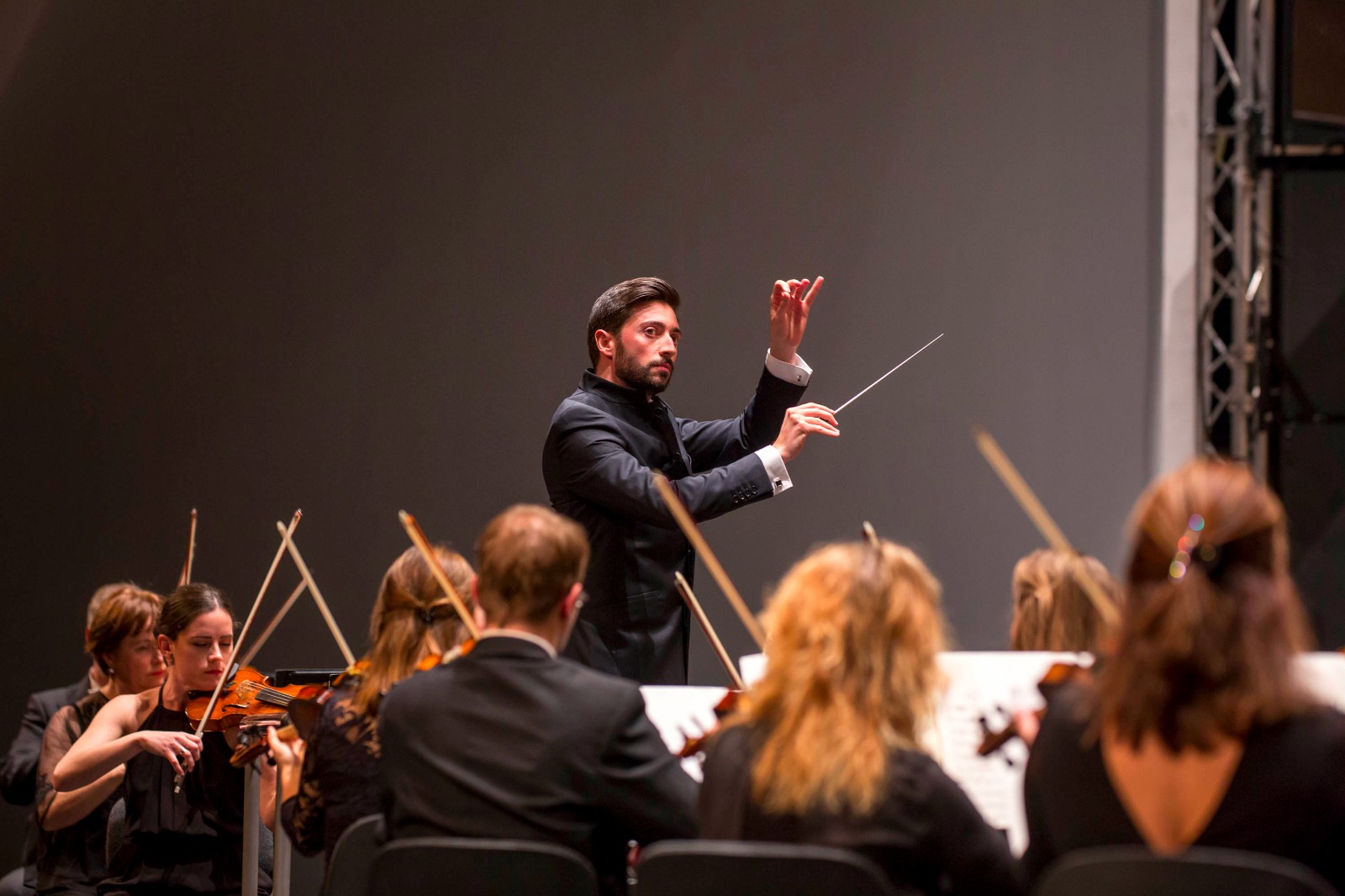Sinfónica de Tenerife ends the season with 'A German Requiem' by Brahms

On Friday, the 21st Sinfónica de Tenerife is giving its season closing concert under the baton of its principal conductor Antonio Méndez. The event also features soprano Eleanor Dennis and baritone Hanno Müller-Brachmann. It is the first time both soloists perform with the Cabildo’s orchestra. The programme also includes the participation of two choirs: Coro de la Comunidad de Madrid and Coro Gulbenkian, the latter singing on the island for the first time too. Auditorio de Tenerife is hosting this programme that consists of A German Requiem, op.45 by Johannes Brahms.
Premiered in 1868, A German Requiem embodies the passage from musical Classicism to Romanticism apart from translating individual expression, as the author does away with Latin in favour of his mother tongue or offers his own interpretation of death. Brahms does without explicit connections to the Christian understanding of death, like the Last Judgment or eternal salvation. The composer is interested in death as a philosophical and vital issue, influenced by the death of his mother and his mentor, Robert Schumann, that took place within a short period. The issue raised in his work is how to live after the death of a loved one.
The composition starts as if emerging from an abyss where a choir is asking for comfort; then, the melody turns darker until it returns to the promise of future happiness. That is expressed in the second movement which, musically, is a funeral march. In the third movement, the baritone speaks directly to God and approaches the issue of the meaning of life as it was understood in the second half of the 19th century. That is why, Brahms is not asking God to forgive him but to hint at his future so that he can experience it to the full. Clearly influenced by the philosophical movement championed by Schopenhauer or Nietzsche, Johannes Brahms pays no attention to the horror that the “end of life” caused in other composers like Mozart, as seen in his Dies Irae. Instead, his interpretation is that immortality consists of living on in the memory of future generations.
Antonio Méndez is becoming one of the most sought-after, established and fascinating conductors of his generation. This translates into the different connections he has established with the main orchestras in Europe, having conducted the Tonhalle-Orchester Zürich, Symphonieorchester des Bayerischen Rundfunks, Mahler Chamber Orchestra, Rotterdam Philharmonic, Danish National Symphony Orchestra, hr-Sinfonieorchester, Royal Stockholm Philharmonic, StaatskapelleDresden, Scottish Chamber Orchestra or Orchestre Philharmonique du Luxembourg.
The Balearic conductor studied piano and violin at the Conservatorio Profesional de Música de Mallorca and then went on to study composition and conducting at Real Conservatorio Superior de Música de Madrid. In 2012 he won the first prize at the prestigious competition Malko in Copenhaguen and in 2013, he was finalist in the Nestlé and Salzburg Young Conductors Award, which caught the attention of the general public.
Scottish soprano Eleanor Dennis trained at the International Opera School of the Royal College of Music and as Harewood Artist at the English National Opera. It was after her performances at the London Handel Festival, in the leading role of Rodelinda, when she started to attract more attention. Specialised critics were quite conclusive: “she has a marvellous future. I’m not sure I can ever remember one who so obviously deserves to be a star” (Fiona Maddocks, The Observer). In 2012 she played Costanza, by Riccardo Primo, where Hugh Canning described her as a “great talent”.
The German bass-baritone Hanno Müller-Brachmann teaches at the Musikhochschule Karlsruhe and made his debut in 2000 at the Carnegie Hall with Chicago Symphony Orchestra under the baton of Barenboim. Hanno was a member of the Staatsoper Berlin from 1998 to 2011. He has also performed in the Baviera, Hamburg and Vienna State Operas in addition to San Francisco Opera. He has been praised by the international press for the different recitals he has given in festivals in Berlin, Graz, Amsterdam, Hamburg, Paris, Laussane, and at London’s Wigmore Hall, at the Schwarzenberg Schubertiade or at the Edinburgh Festival.
Recognised as one of the best and most versatile Spanish choirs, the Coro de la Comunidad de Madrid is back on the island thirteen years after their last visit. This prestigious group was set up in 1984 and is currently directed by choirmaster Félix Redondo. Its wide range of activities include a capella recitals and with orchestra, participating in opera productions or in recording studios. Its growing prestige has led them to perform on the main Spanish stages and on many abroad, including Germany, Belgium, France, Poland, China, Japan, Morocco or Mexico.
Coro Gulbenkian, their first time on the island, was set up in 1964 by the Calouste Gulbenkian Foundation. It has 100 singers and is currently led by choirmaster Jorge Matta. Their repertoire encompasses the classical symphonic choral, Romantic, and contemporary although they also perform a cappella. The choir has been invited to collaborate with major international orchestras and conductors like Claudio Abbado, Colin Davis, Emmanuel Krivine, Esa-Pekka Salonen, Frans Brüggen, Franz Welser-Möst, Gerd Albrecht, Michael Gielen, Michael Tilson Thomas, Rafael Frübeck de Burgos, René Jacobs or Leonard Slatkin.
Tickets for this last concert are available at the box office from 10:00 am to 7:30 pm Monday to Saturday; by telephone on 902 317 327; or on the websites www.sinfonicadetenerife.es and www.auditoriodetenerife.com.


